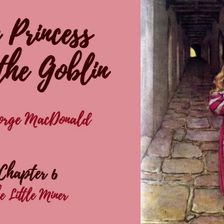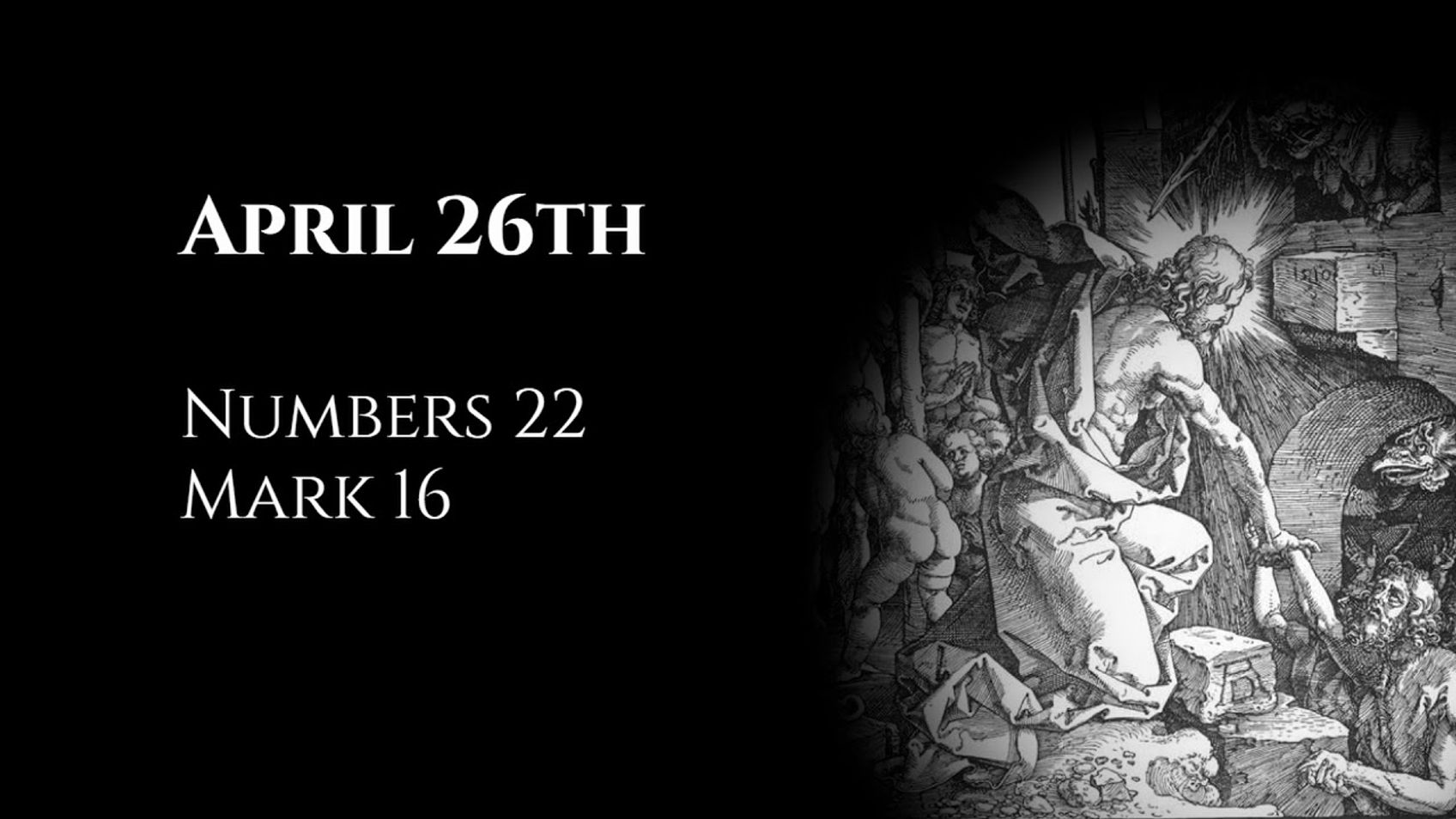April 26th: Numbers 22 & Mark 16

Balaam and his ass. The resurrection of Jesus and the disputed end of Mark’s gospel.
Some passages referenced:
Exodus 18:1-5 (Jethro at Sinai); Exodus 1:8-12 (Pharaoh and the Egyptians’ fear of the multiplying Israelites); Genesis 12:3 (Abraham’s blessing); Genesis 22:3 (Abraham, his donkey, and two young men); Genesis 22:10-12 (the Angel of the Lord stops Abraham); 2 Peter 2:12-22 (Peter treats Balaam as an example of a false teacher).
Mark 14:28 (Jesus declares that, after the resurrection, he will meet his disciples in Galilee); Matthew 28:9-10 (Jesus instructs the women to tell the disciples); Mark 1:14, 16:15 (‘preach the gospel’); Mark 1:15, 16:16 (preaching and faith); Mark 10:32-34 (Jesus foretells his death and resurrection); Mark 5:21-43 (Jairus’ daughter); Deuteronomy 7:1 (casting out seven nations); Titus 3:5 (washing of regeneration); 1 Peter 3:21 (baptism now saves us); Romans 6:1-14 (dead and buried with Christ in baptism, to be raised by the dead); Hebrews 2:3-4 (signs testifying to the apostolic message); John 14:12 (signs following); Mark 3:14-15 (authority to cast out demons given to the Twelve); Acts 28:3-6 (Paul survives being bitten by a serpent); Exodus 4:1-5 (Moses picks up a serpent).
Reflections upon the readings from the ACNA Book of Common Prayer (http://bcp2019.anglicanchurch.net/).
If you have enjoyed my output, please tell your friends. If you are interested in supporting my videos and podcasts and my research more generally, please consider supporting my work on Patreon (https://www.patreon.com/zugzwanged), using my PayPal account (https://bit.ly/2RLaUcB), or by buying books for my research on Amazon (https://www.amazon.co.uk/hz/wishlist/ls/36WVSWCK4X33O?ref_=wl_share).
The audio of all of my videos is available on my Soundcloud account: https://soundcloud.com/alastairadversaria. You can also listen to the audio of these episodes on iTunes: https://itunes.apple.com/gb/podcast/alastairs-adversaria/id1416351035?mt=2.
More From Alastair Roberts






More on OpenTheo















